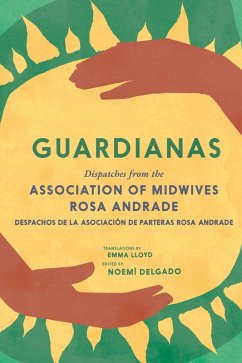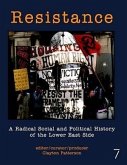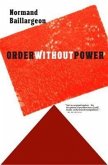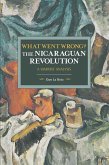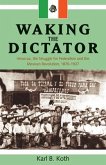A collection of testimonies from midwives in El Salvador who delivered babies during the twelve-year-long civil war and today fight to protect their ancestral role in the midst of ongoing repression. Una colección de testimonios de parteras de El Salvador que atendieron partos durante doce años de guerra civil, y que hoy luchan para proteger su rol ancestral bajo una enorme represión gubernamental. This bilingual edition includes thirty color photographs and five black-and-white illustrations. Out of necessity, women in El Salvador began attending births during the twelve-year-long civil war, when pregnant people in rural areas and guerrilla camps could not access medical care. From their mothers and older midwives, these women learned partería—traditional midwifery that was once the norm in El Salvador and has since been prohibited. After the official end to the war, the parteras became central fixtures in the “repopulation” of their country, building new communities, often without electricity or running water or hospitals. In 1994, out of this organizing, the Association of Parteras Rosa Andrade (APRA) was born. Today, the founding members of APRA, along with a younger generation training with them, continue to fight for the reproductive rights of thousands of people living in the municipalities of Suchitoto, Cuscatlán. Collected in 2019 by Salvadoran American birth worker Noemí Delgado, Guardianas weaves together testimonies from twenty members of APRA to tell a collective story of: * the experiences of midwives, mothers, guerrilla fighters and “gente de masa” during the armed conflict that took approximately 75,000 lives; * the role of the midwife during the period of repopulation after the signing of the Chapultepec Peace Accords, when thousands of displaced Salvadorans were finally allowed back into their homeland; * the brutal obstetric violence that people giving birth in hospitals routinely face, and how this mistreatment compares to care provided by a midwife; * the extreme repression Salvadoran midwives have faced since 2011, when the health ministry prohibited home births; * the ancestral nature of partería, an earth-based art practice that is passed down between generations, and derives from an extensive body of knowledge about safe and empowering births. This anthology is both a safeguarding of the caretaking traditions of partería as well as a broader invitation to consider the role of birth work in organizing against war, imperialism, and corporate power. Here, the beauty of the testimonies—and the care with which they were compiled—ultimately come together to upend our ideas of what a medical ethnography can be and what an oral history can do.
Hinweis: Dieser Artikel kann nur an eine deutsche Lieferadresse ausgeliefert werden.
Hinweis: Dieser Artikel kann nur an eine deutsche Lieferadresse ausgeliefert werden.

